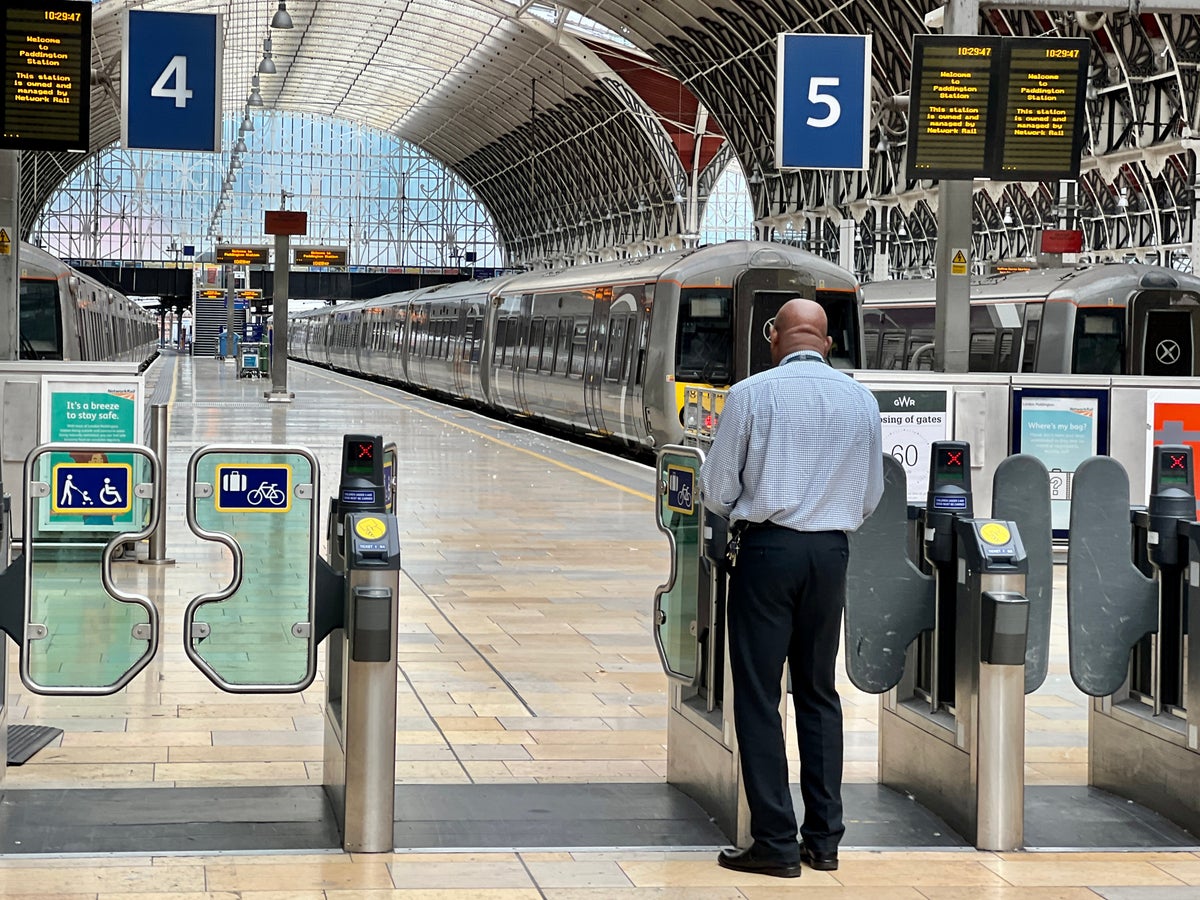
Simon Calder, also known as The Man Who Pays His Way, has been writing about travel for The Independent since 1994. In his weekly opinion column, he explores a key travel issue – and what it means for you.
As you know, this is the worst summer for rail disruption since the 1980s. I am writing aboard the 1.30pm from Bristol Temple Meads to London Paddington on Saturday 30 July. This is the only intercity route on the Great Western Railway (GWR) network with actual trains running.
I had hoped to be aboard the departure an hour ago, but it was cancelled. A driver-manager is at the helm of this one.
The very helpful guard has warned passengers that the last train back from Paddington to the west of England is at 7.30pm. At least GWR is doing better than Southeastern, one of six other train operators whose drivers are on strike on 30 July. London Charing Cross, the central hub for services to Kent, is all locked up because no trains are running.
August is awash with strikes. On Saturday 13 August, around 7,000 train drivers who belong to the Aslef union and work for nine train operators will walk out, with Avanti West Coast and CrossCountry brought into the industrial action.
The fifth and sixth days of national rail strikes by members of the RMT will bring much of the network to a halt on 18 and 20 August with a bonus London Underground stoppage sandwiched between them on 19 August.
The taxpayer is currently bankrolling the railways like never before: the Rail Delivery Group, representing train operators, estimates rail revenue has fallen by 20 per cent (roughly £2bn per year) since the coronavirus pandemic.
There are three ways to cut the eyewatering subsidy to those of us who remain rail loyalists:
- cut back on services
- entice more passengers on board trains
- extract more productivity from staff and working practices
Let’s look at each of those options. The unions are betting that, as the Treasury’s limitless credit card preserved every job on the railways during the Covid pandemic, financial support for running the present level of trains will continue.
I fear they are sadly mistaken. The next occupant of Downing Street will make swingeing reductions in public expenditure, and the railways comprise an obvious target. Some of the cuts will be on investment for the future (with passenger numbers down, these are easy to justify), others by reducing the number of train services running.
The only way to avoid those cuts: raise passenger revenue or lower the costs of operating the rail network. Weekends now represent the future of the railway, with leisure travel replacing commuter traffic as potentially the best source of extra income. That is why the unions have shifted to strikes between Thursday and Saturday (with added hangover disruption on Sunday) to press home their demands.
Halting all Great Western trains to or from Cornwall, Devon or South Wales on the final Saturday of July is an excellent way to cause maximum disruption to as many holidaymakers and daytrippers as possible.
While every union will naturally seek the maximum impact from walking out, the effect on confidence in the railway among families whose trips are wrecked may prove long-lasting.
In terms of productivity: there are probably more opportunities for finding efficiencies in rail than in any other industry. The eventual solution for this tangle of disputes will involve the trade unions extracting a percentage here, a payment there in return for reforming working practices.
The deal to end the strikes will include a range of perks for workers that will disguise the value of the pay rise. Expect a headline figure of perhaps 5 per cent – but Network Rail and the train operators will throw in some potentially very valuable concessions on travel for the families or partners of railway workers that equate to thousands of pounds per year. Good luck to them – but a friendly reminder that every strike causes short-term harm and a long-term erosion of public trust in the railways.
Long-suffering passengers and taxpayers, as well as rail staff themselves, deserve a swift settlement.







